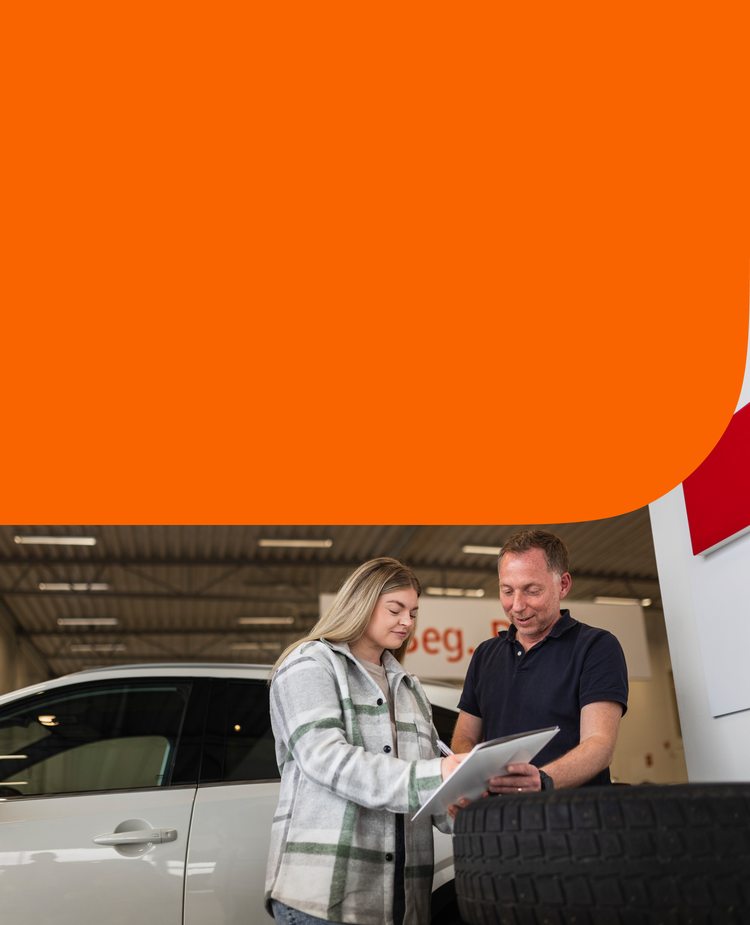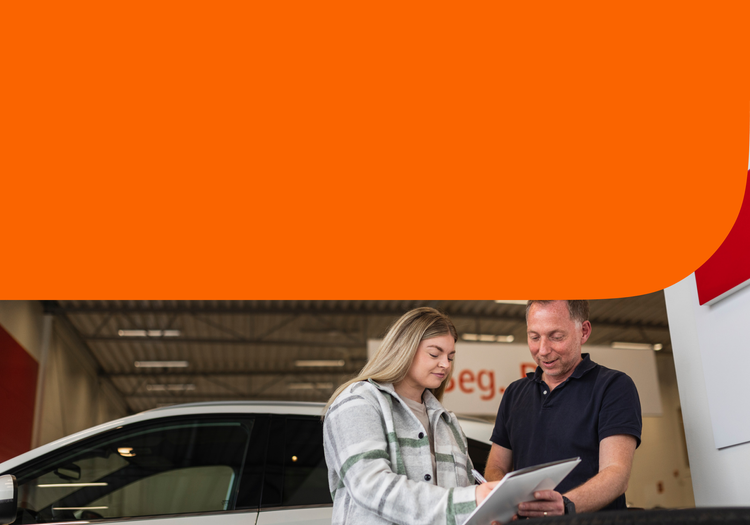


Express Lane{ca-indigo-700}
7 Questions to Ask When Buying a Used Car
Buying a car is always exciting. It can also be intimidating—especially if you are buying a used car for the first time.
Buying a used car can result in major cost savings over buying a new car, and it can be a smart move if you do your homework, ask the right questions and shop around.
Used cars are not just an option for first-time buyers and people on a budget. Many people see used cars as a way to get the vehicle they want at the price they want to pay. An estimated 36 million used vehicles will be sold in 2024, according to a report by Cox Automotive. That means buying a used car is a mainstream strategy.
There are some complexities in the used car market that you generally don’t have to address when buying a new car, but it’s nothing you cannot handle with a little preparation. To help you in the shopping process, here are seven questions to ask when buying a used car.
Am I able to test drive the car?
It’s always good to get a personal look at the car you’re considering. And what better way to do that than to take it for a quick spin? You’ll learn how the car runs, how much space it has, and other important information you can only get while driving. Test driving a car is a standard part of the buying process and many buyers will not consider buying a car they are not allowed to drive. If a seller will not let you test the car, that may be a red flag.
Is it a ‘Certified Pre-Owned’ vehicle?
Some used cars for sale at a dealership are designated as “certified pre-owned” and some are not. The certification means the vehicle is heavily inspected by the dealership or the manufacturer and comes with some type of additional warranty coverage. Because of this, they often cost more than a standard used car, but less than a new car. If you are starting to shop, do some research on whether a certified pre-owned vehicle might fit into your budget. If you have already identified a car you want to buy, find out if it is certified pre-owned.
What kind of inspection was done?
Every dealership inspects the cars they sell. Ask about the inspection, what was identified and what was repaired or replaced. This will give you a strong idea of the car’s condition and which of the car’s systems have been examined by a professional mechanic. Many dealerships have a standardized process and can show you a list of what was inspected.
What is the warranty coverage?
It’s important to know the warranty on the vehicle so you’re aware of your responsibilities regarding future vehicle repairs and maintenance. Take the time to understand what is covered and for what length of time. Equally important, know what you must do in terms of maintenance to keep the warranty valid. For example, almost all cars need regular oil changes, and failing to do so can have an impact on your warranty.
How much does the car cost after fees and licensing?
Focusing too much on monthly payments rather than the actual cost of the vehicle can lure you into making a more expensive purchase. Take the time to understand the total cost of the car and review each cost associated with the vehicle’s total price.
What is the car’s history?
Asking the dealer about the car’s history is a must. Many dealerships have access to vehicle history reports that provide valuable information. You too can find out information on a car by using a service such as Carfax. Often, all you need is the Vehicle Identification Number, often called the VIN, to learn whether the car has been in an accident and other important information.
What is the contract length and interest rate
If you plan on applying for vehicle financing, inquiring about the length of the contract (often called the “term”) and the interest rate is important to help you understand the total cost of ownership and provide a starting point for negotiations.
Before it is time to negotiate on a specific vehicle, you want to know that you can get financing and how much you can borrow. A great way to do this is to get pre-qualified for financing, before you go shopping to look at cars. If you’re ready to get pre-qualified, visit Credit Acceptance to find more information on the process and many other helpful topics.